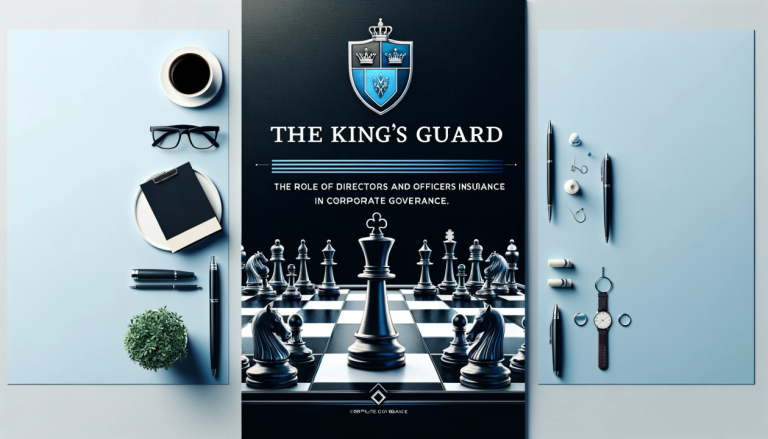Breach of Fiduciary Duty
Directors and officers have a fiduciary duty to act in the best interest of the company and its shareholders. If stakeholders believe a leader failed in this duty, they can sue. For example, imagine a company’s board of directors approves a high-risk expansion that leads to huge losses. Shareholders might file a lawsuit claiming the board was negligent and breached their fiduciary duty by making an imprudent decision. In another case, a board might be accused of not doing enough (inaction) – perhaps they failed to address a known problem, causing harm. D&O insurance would cover the legal defense for the directors in these situations, and if a settlement or judgment is reached (say the court finds the board indeed neglected their duties), the policy would pay those costs (except in cases of proven fraud or illegal conduct). Breach of fiduciary duty claims are common and can stem from almost any major decision or indecision by management that negatively impacts the company or its owners.
Misrepresentation to Investors or Shareholders
This type of claim arises if company leaders are accused of providing false or misleading information. For instance, consider a startup CEO who, during fundraising, presents overly rosy financial projections or hides some negative facts. If the startup later struggles, the investors might claim they were misled and sue the CEO and possibly the board for misrepresentation or fraud. Similarly, in a public company context, if a corporation’s executives make optimistic statements about the company’s product that turn out to be untrue, shareholders who see the stock drop might sue for securities fraud, alleging the officers misrepresented the truth. These claims often fall squarely under D&O coverage. Even if the misrepresentation wasn’t intentional (perhaps the executives genuinely thought the projections were achievable), they could still face lawsuits when things go wrong. D&O insurance funds the legal defense and any settlement in such cases, protecting the individuals and the company’s balance sheet from the fallout.
Shareholder Lawsuits Over Company Performance
Shareholders (or minority owners in a private company) may sue if the company’s performance disappoints and they suspect management mistakes or misconduct. For example, if a publicly traded company’s stock price plunges after a failed project or a scandal, it’s common to see class action lawsuits from shareholders alleging the directors and officers mismanaged the company or concealed problems. In a private company, suppose a business misses its growth targets and an investor loses confidence – they might sue claiming the officers didn’t execute the business plan properly or wasted corporate assets. These scenarios lead to claims like shareholder derivative lawsuits or direct lawsuits for losses. D&O insurance is crucial here: it will cover the directors/officers in defending against these allegations of poor management. Without insurance, even baseless shareholder suits can rack up enormous legal bills. With D&O coverage, the leaders can fight or settle the claims without personal financial ruin.
Regulatory Action and Legal Compliance Claims
Often, D&O claims stem from government or regulatory actions. For instance, an environmental regulator might accuse a company’s executives of not complying with certain laws, or the SEC might investigate a finance officer for possible insider trading or misleading financial statements. Even if the investigation doesn’t lead to charges, the individuals must hire lawyers and potentially go through lengthy legal processes. D&O insurance typically covers the cost of responding to investigations and defending regulatory proceedings against directors and officers. A concrete example: A pharmaceutical company’s CEO is investigated by the FDA for allegedly fast-tracking a drug approval with incomplete data; legal defense will be needed to protect the CEO’s interests. Or a tech company faces a data breach, and a state attorney general claims the CTO failed to implement required data security measures – again, D&O coverage would help the CTO defend themselves. Regulatory-related claims can be complex and costly, making D&O coverage invaluable for leaders navigating these challenges.
Creditor or Bankruptcy-Related Claims
If a company falls into financial distress, its directors and officers can face lawsuits from creditors or bankruptcy trustees. For example, if a startup goes bankrupt, investors, lenders, or vendors owed money might claim that the executives mismanaged the finances or engaged in wrongful acts that led to insolvency. They could sue the CEO or board trying to recover losses, alleging things like fraudulent conveyance, preferential treatment of some creditors over others, or simply negligent overspending. D&O insurance for a private company often covers the directors/officers in these bankruptcy-related lawsuits (though sometimes there are specific provisions, as insolvency tends to invite litigation). Essentially, if the leadership is accused of wrongful acts in the lead-up to a company’s failure, a D&O policy would respond to protect those individuals. This scenario underscores that D&O insurance isn’t just for thriving companies – it’s also critical as a company faces tough times, ensuring that the personal assets of the leaders aren’t targeted without a defense.
Employee and HR Claims Involving Directors / Officers
Many employment-related lawsuits (like harassment, discrimination, or wrongful termination) are covered under Employment Practices Liability Insurance (EPLI), but there are cases where a D&O policy might come into play. For example, if a lawsuit alleges that the company’s leadership failed to provide a safe and fair workplace, or a high-level executive is personally named in a harassment lawsuit, the D&O policy might respond (especially if EPLI coverage is not in place or is exhausted). Consider a scenario where a group of employees sue the company and also name the CEO, claiming the CEO knew of and allowed a toxic workplace culture that led to their grievances. D&O insurance could cover the CEO’s defense in that case. Another example: A whistleblower employee alleges the CFO and other officers engaged in wrongdoing (like financial statement manipulation); if that turns into a lawsuit against those officers, D&O coverage is applicable. These examples show how D&O and other coverages can intersect, and why having a holistic protection plan is important.
Each of these scenarios demonstrates the breadth of incidents that can trigger D&O claims. They range from classic shareholder lawsuits to more unexpected sources. What they have in common is that they all accuse company leaders of some form of wrongful act, error, or omission in their management role. For each example given, a D&O insurance policy would be the safety net covering defense costs, investigation costs, settlements, or judgments (up to the policy’s limit), so that the individual leaders (and usually the company as well) aren’t bearing those costs directly.
Without D&O insurance, any one of these claims could be financially devastating – not to mention the distraction and stress they would cause to the management team. With D&O insurance, companies and their boards can navigate these challenges much more smoothly, having expert legal teams funded by the policy and the ability to settle claims without crippling financial consequences. This is exactly why organizations large and small prioritize obtaining good D&O coverage: it’s there to handle these “when things go wrong” situations that are unfortunately all too common in the business world.





























































































































